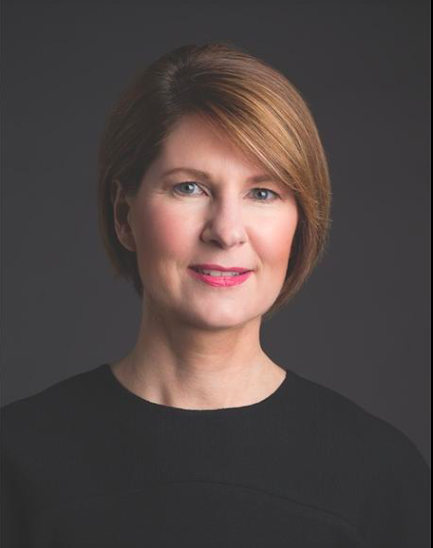From #MeToo to #NoMore: How to end sexual harassment in government
Lauren Green was pursuing a promising career as a communications director on Capitol Hill when her career took a nosedive. She lost her job, moved back home and had to make ends meet by babysitting. The reason? She accused her boss, a congressman, of sexual harassment.
Wendy Doyle, Women's Foundation President & CEO
Warned that she would be “blackballed” for speaking out and told even by friends that she would never work in Washington, D.C., again, Lauren experienced repercussions for speaking out that were swift and all-encompassing.
Like countless other women who have courageously come forward to share their #MeToo stories, Lauren’s experience demonstrates the way sexual harassment can have a devastating impact not only on a woman’s physical and emotional well-being, but on her career path as well.
Every instance of sexual harassment, especially when it is perpetrated by elected officials entrusted with political leadership, is a setback for gender equity and opportunity — and a harmful breach of the public’s trust.
As an organization that works to address the underrepresentation of women in public service, the Women’s Foundation has seen first-hand how sexual harassment contributes to a self-perpetuating cycle.
Hostile work environments have a deterrent effect on women’s civic participation, which means many state capitols continue to be dominated by men — and overly tolerant of inappropriate behavior.
A survey by The Associated Press found that one-third of all state legislatures do not require lawmakers to participate in sexual harassment training and that most legislative bodies do not conduct independent, external investigations.
So how can we combat sexual harassment and marshal the political will to change the culture that enables it?
At the Women’s Foundation, we believe in a collaborative approach, one that’s informed by research and laser-focused on practical, proven solutions.
Last year, after gathering input from advocates, legal experts and stakeholders, we submitted a set of recommendations to the Kansas Legislature. They included:
- Requiring elected officials, legislative staff, interns and lobbyists to actively participate in an annual training on civil discourse, cultural competence and sexual harassment;
- Providing for independent, outside legal counsel to conduct sexual harassment investigations;
- Allowing victims to report their allegations anonymously;
- Establishing a non-fraternization policy for elected officials, legislative staff, interns and lobbyists;
- Banning arbitration and limiting mediation; and
- Increasing the number of women in leadership roles.
In both Jefferson City and Topeka, we’ve found willing partners in this effort. In Kansas, Gov. Jeff Colyer and state Sen. Susan Wagle have acted on our recommendations and taken steps to prevent sexual harassment, discrimination and retaliation across state government.
In Missouri, we have worked with Attorney General Josh Hawley and House Speaker Todd Richardson to strengthen sexual harassment policies and provide a safe, respectful and professional environment for everyone who works for — or interacts with — state government.
And in both states, our program to increase the number of women serving on civic boards and commissions has seen exponential growth. Launched in 2014, our Appointments Project has received more than 1,000 applications and placed more than 80 women on publicly-appointed boards and commissions.
Leaders on both sides of the aisle are recognizing that having more women at the decision-making table not only helps combat sexual harassment but also improves policy outcomes and improves governance.
Make no mistake, sexual harassment is a systemic problem — and systemic problems rarely get solved overnight. That is why a sustained commitment is essential. Quick fixes won’t work. Thoughtful, forward-looking solutions will.
For many of us, this is also deeply personal. As someone who has dedicated my career to advancing equity and opportunity for women, I know how important it is that we get this right for the next generation of women and beyond.
All our efforts to advance equity — from equal pay to paid leave — will falter if women aren’t being treated with basic dignity and respect in the workplace.
So for Lauren and all the others who have shared your stories: thank you. You are making it possible for this work to happen. And with continued persistence I’m confident we can make meaningful progress toward ending sexual harassment and promoting equity and opportunity for all women.
The Women’s Foundation promotes equity and opportunity for women of all ages, using
research, philanthropy, and policy solutions to make meaningful change. More information
about the organization can be found at www.Womens-Foundation.org.

